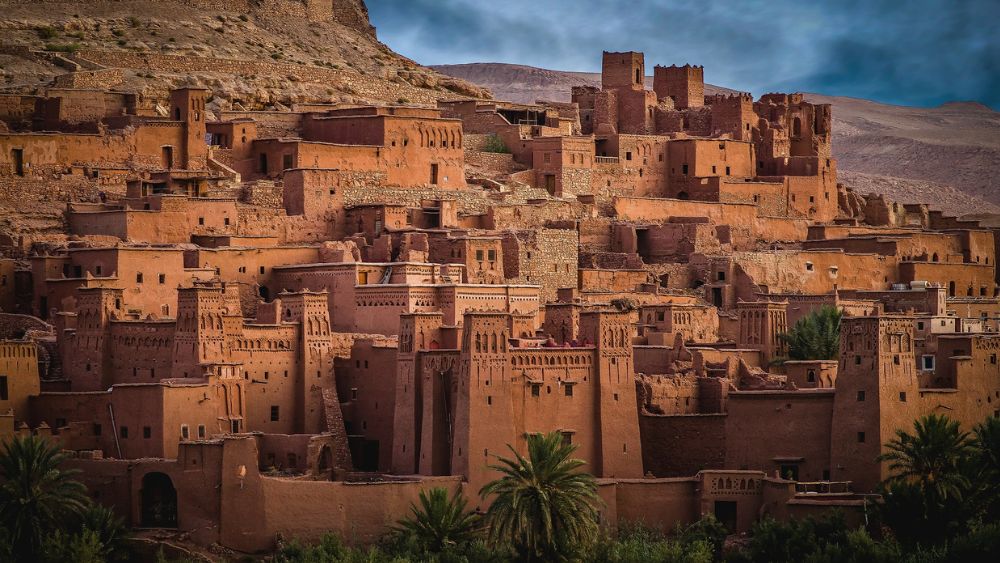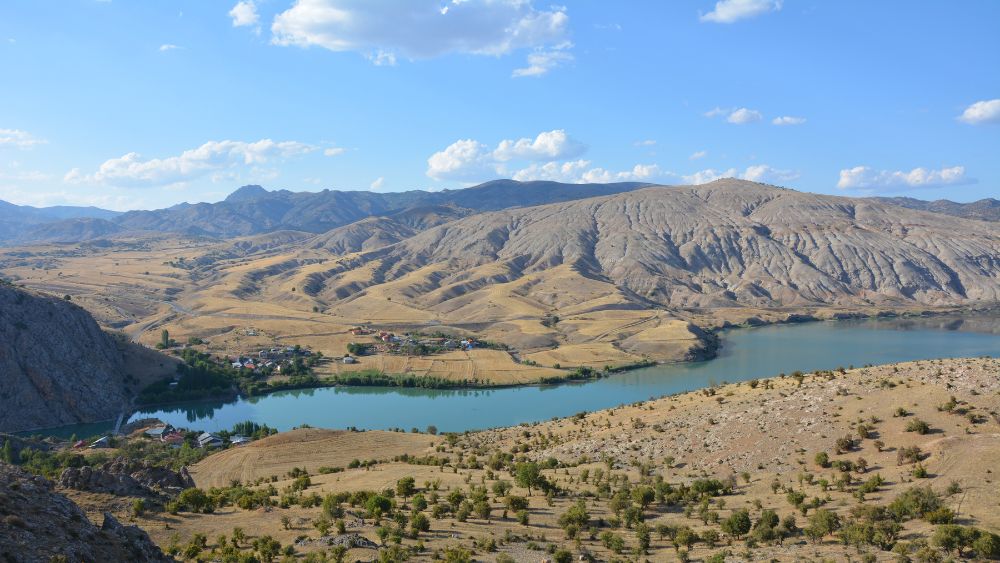The History of Karbala and Martyrdom of Hussain Ibn Ali (R)

The Battle of Karbala is one of the saddest events in Islamic history. It reminds us of the painful martyrdom of Hussain ibn Ali (R), the beloved grandson of our Prophet Muhammad ﷺ, along with his family members and companions. This tragic event happened on the 10th of Muharram, in the year 61 Hijri.
In this blog, we will share the story of the Battle of Karbala, taking lessons and inspiration from the famous book Al-Bidayah wan-Nihayah by Imam Ibn Kathir (RA).
Let’s begin this emotional journey and reflect on the powerful lessons it holds for us.
Who was Hussain ibn Ali (R)?
Hussain (R) was the grandson of Allah’s Messenger ﷺ. His (R) father was the fourth caliph of Islam, Asadullah al-Ghalib Ali ibn Abi Talib (R), and His (R) mother was Fatimah az-Zahra (R), the youngest daughter of Prophet ﷺ. Hasan bin Ali (R) was his elder brother.
Al-Qatadah (R) states that “Hussain was born six years and five and half months after the Hijrah (migration). He was killed on a Friday on the Day of Ashura in the sixty-first year, aged fifty-four years and six and a half months (R).” [Al-Bidayah wan-Nihayah]
Both Hasan ibn Ali (R) and Hussain ibn Ali (R) have great virtues in Islam. Here are some virtues of Husayn (R) mentioned in the hadith–
Abu Sa’eed Al-Khudri (R) narrated that The Prophet ﷺ said: ”Al-Hasan (R) and Al-Husayn (R) are the leaders of the youth of Paradise.” [Musnad Ahmad, Jami At-Tirmithi, Sunan Ibn Majah, Sunan An-Nasa’i]
Usama ibn Zayed (R) narrated, I knocked on the door of the Prophet ﷺ for a need, and he ﷺ said: “These [Hasan (R) and Husayn (R)] are my sons and my daughter’s sons. O Allah, I love them, so love them, and love whoever loves them.” [Jami At-Tirmidhi]
The Messenger of Allah ﷺ said: “Hussain (R) is from me, and I am from Husain (R). Allah loves whosoever loves Hussain (R).” [Jami At-Tirmidhi]

Everything about the History of Karbala Battle
Now, we’ll discuss all the key things related to the battle of Karbala step by step.
i. Background of the Battle of Karbala
After the martyrdom of the fourth caliph Ali ibn Abi Talib (R), the people of Kufa (in Iraq) pledged allegiance to his elder son Hasan ibn Ali (R), as the next caliph. But there were some differences in opinions between Muawiya (R) and Hasan (R).
In one stage, Hasan (R) handed over the caliphate to Muawiya (R) with a peace treaty. There are several clauses in that agreement. Some of the important ones that are related to the Karbala battle background are-
- Muawiya (R) couldn’t nominate the next Khalifa. The Shura committee would choose the next.
- If Hasan (R) lived and Muawiya (R) died, Hasan (R) would be the next Khalifa.
Hasan (R) was poisoned to death, and Muawiya (R) appointed his son Yazid as the next Umayyad caliphate. But most prominent companions of the Prophet ﷺ including Hussain (R), didn’t support Yazid’s succession of power. So, from the beginning of the Yazid’s power, there were some differences in opinions between Hussain (R) and Yazid.
ii. Journey Towards Kufa
After the succession of power, Yazid ordered the governor of Madina to take Yazid’s pledge of allegiance from Hussain ibn Ali (R). But, he refused it? Then Yazid ordered again to throw Hussain (R) to prison as punishment. Now, the governor was in danger, so he requested Hussain (R) to leave Makkah. So, Hussain ibn Ali (R) with his family migrated to Makkah unwillingly.
When in Makkah, Hussain ibn Ali (R) received many letters from the people of Kufa (in Iraq). They wrote that they were unsatisfied with Yazid’s activities, and they wanted to pledge allegiance to Hussain (R). Hussain ibn Ali (R) sent his cousin, Muslim bin Aqil (R), to observe the actual scenario of Kufa. Muslim ibn Aqil (R) saw that the people of Kufa sincerely wanted to give Bayyah to Hussain (R). So, Muslim ibn Aqil (R) wrote to Hussain (R) explaining the situation of Kufa.
After getting confirmation from Muslim ibn Aqil (R), Hussain (R) intended to go there. So, he discussed it with the Prophet’s companions ﷺ but most of them told him not to go there. But Hussain ibn Ali (R) decided to go as the people of Koofa were ready to pledge allegiance to Hussain (R).
When Yazid heard about the presence of Muslim bin Aqil (R) in the Kufa, he replaced the existing governor, Numan ibn Bashir and appointed a new governor, Obaidullah ibn Ziyad. He also ordered Ibn Ziyad to resist Muslim ibn Aqil (R) and Hussain (R). Then Ibn Ziyad arrested the leaders of the Kufa and, thereafter, Muslim ibn Aqil (R).
In this situation, the people of Kufa left Muslim bin Aqil’s (R) side due to the situation. Afterwards, ibn Ziyad killed Muslim (R) brutally. Before being killed, Muslim bin Aqil (R) wrote about the present scenarios to Hussain (R) and requested him to go back as the people of Kufa betrayed him. But Hussain had already departed for Kufa, and he didn’t know it.
At 8th Dhul Hijjah on 60 AH, Hussain ibn Ali (R) started the journey to Kufa with his family members where most of them were Ahlul Bayit (members of the Prophet’s ﷺ family) and sixty associates. After travelling for several days, Hussain (R) received the news of the martyrdom of Muslim bin Aqil (R).
Huseyn ibn Ali (R) understood that the overall situation wasn’t going well. But he was determined to continue his journey to Koofa.

iii. What Happened in Karbala?
On the 2nd Muharram, 61 Hijri year, Hussain (R) and his companions reached Karbala (situated in Iraq). But they were blocked by Yazid’s 4000 force led by Umar ibn Saad. As Hussain ibn Ali (R) and his mates had been traveling for a long time, they were tired and thirsty. But Ibn Saad’s army didn’t reach them near the Euphrates River to collect water. So, the children, women, and others were suffering a lot due to a lack of water. Ibn Saad’s army surrounded and attacked Hussain’s (R) companions sometime in the following few days.
On the night before the Karbala battle, Hussain (R) announced that if anyone from his group wanted to go back to Makka, it would go as they would be killed by Yazid’s force soon. But everyone with him was ready to be on the side of Hussain ibn Ali (R) until they lived in this world. Subhan Allah, like the leader, like the followers, the examples of righteous Muslims.
On the 3rd of Muharram, Ibn Saad said to Hussain (R) to pledge allegiance to Yazid or surrender. But he (R) refused it like before and said death is better to me than pledging allegiance to Yazid. From the 7th of Muharram, Yazid’s army blocked the water sources completely. Thus, Hussain’s (R) camp was distressed terribly due to the lack of water. However, they didn’t give up their way.
On the 10th of Muharram night, Hussain (R) and his companions offered deep worship to Allah and took preparation for the battle. After the Fajr prayer on the 10th of Muharram, Hussain ibn Ali (R) delivered a speech. He (R) said to the Yazid’s soldiers we didn’t come here to fight nor to seize Yazid’s power. He also added we came here as you invited me; now you are betraying me. Hussain (R) told them to let him with his companions and family members go back to Madina or any Islamic border so we could fight there against infidels or let me go to meet Yazid; I would understand with him. But Yazid’s army denied it. As a result, war became inevitable in Karbala. But some people from Yazid’s army, like Al-Hurr ibn Yazid Al-Tamimi, joined Hussain’s (R) side to defend him.
From the morning of the 10th Muharram, Ibn Saad’s army started attacking Hussain (R) and his companions. Hussain ibn Ali (R) was the brave son of Asadullah al-Galib Ali ibn Abi Talib (R). Hussain (R) and his companions were very few compared to the 4000 Yazid forces. However, they all fought bravely and received martyrdom at last. May Allah have mercy on all of them.
Yazid’s army killed women, children, and even infants from Hussain’s (R) side brutally (almost 72 of Hussain’s (R) companions). Al-Hasan al-Basri is reported to have said: “Sixteen other men were killed with al-Husain (R), all of whom were from his Ahl ul-Bait (members of his family)”. Only Zainul Abedin, the son of Hussain (R), was alive then, as he wasn’t present there due to his sickness.

iv. Martyrdom of Hussain Ibn Ali (R)
No one actually wanted to charge the murder of Hussain ibn Ali (R). However, a man, supposedly Malik bin an-Nusair from Banu Badda’s tribe, came and hit his head with a sword that caused it to bleed. Hussain (R) put a bandage there, but it was filled with blood soon. Al-Husain (R) was very thirsty, so he tried to reach the River Euphrates desperately to drink, but he couldn’t. An arrow shot him that struck Hussain’s (R) throat.
Then Hossayn ibn Ali (R) raised his bloody hands and supplicated: “O Allah! Give them their retribution many times over, kill them wherever they may be, and do not leave a single one of them on the earth! ”He continued to supplicate in this way.
After that, a sinner named Sinan ibn Anas beheaded Hussain ibn Ali in order of Seemer. After martyrdom, it was seen that there was a total of 34 swords and 33 spear wounds on Hussain’s (R) body.
v. Post Karbala Events
The local people of the Banu Asad tribe buried the martyrs of Karbala near Karbala. The beheaded head of Hussain ibn Ali (R) was sent to Umar ibn Ziyad.
Anas (R) is reported to have said: “I was with Ibn Ziyad when the head of al-Husain was brought to him. Ibn Ziyad started poking at the nose and mouth of al-Husain with a stick, upon which he made some reference to his handsome features. So I said to him: “Al-Husain resembled the Prophet ﷺ more than the others did.” [Al-Bidayah wan-Nihayah]
After the Karbala battle, Yazid’s rule didn’t last longer. Most of the people who killed Hussain ibn Ali (R) and his companions had a bad death later.

Lessons from the Karbala Battle
Yazid tried to take the pledge of allegiance from Hussain (R) in many ways, but Hussain (R) refused it every time. Until martyrdom, Hussain ibn Ali (R) was steadfast in his way (as he considered this the more righteous act). He (R) fought for the eternal cause, not for worldly things.
Frequently Asked Questions
Q. When was Hussain ibn Ali (R) martyred?
Ans: Hussain (R) was martyred at the 10th Muharram in 61 AH Islamic year, and this day was Friday. May Allah be pleased with him. At that time, he was fifty-four years and six and a half months.
Q. What should be our attitude on Muawiya (R)?
Ans. Muawiya (R) was a companion of Allah’s Messenger ﷺ. He (R) did lots of good deeds, including writing the Revelation. Although he appointed Yazid as the next caliphate, we still shouldn’t curse him as cursing the companion of Allah’s Messenger ﷺ is a great sin to Allah.
Q. What is the ruling of Yazid ibn Muawiya?
Ans. The martyrdom of Hussain (R) by Yazid’s army is a heartbreaking issue. So, you may wonder, ‘how should we treat Yazid’? Actually, it is a disputed matter. There are several opinions among scholars about Yazid, such as-
- Some scholars declared him a Kafir (disbeliever) and Munafiq (hypocrite).
- A number of scholars refused the first opinion and proved that he was a believer.
- And there is a third opinion of scholars who say not to comment on Yazid as Allah knows about Yazid’s condition the best. According to them, neither curse nor love Yazid.
Allah knows the best. For more, please read this Fatawa.
Q. Is it okay to mourn for Hossain’s (R) martyrdom?
Ans. There is no special mourning in Islam after three days of one’s death.
Allah’s Messenger ﷺ said: “He is not from our group who slaps his checks, tears his clothes, and cries in the manner of the people of Jahiliyyah (pre-Islamic period).” [Sahih Bukhari]
Conclusion
The Battle of Karbala is a defining moment in Islamic history. It stands as an eternal witness to the courage, sacrifice, and unwavering faith of Hussain ibn Ali (R) and his companions. The legacy of Karbala lives on, forever etched in our hearts, guiding us through the generations with its profound lessons.
Disclaimer: The topic of this article is quite sensitive. We tried to cover it from a neutral point of view. It’s true that some conflicts had occurred between Hussain (R) and Yazid [the son of Muwawiyah (R)], but we don’t want to comment on these. Allah SWT knows the best about these events. Hussain (R) was the grandson and companion of Allah’s Messenger ﷺ, and Muwawiya (R) was a writer of revelation and companion of Prophet Muhammad ﷺ. So, we love both Hussain (R) and Muqawiyah (R). As for Yazid, we neither curse nor love him. Allah knows best. If you notice any discrepancies in this article, please let us know.


